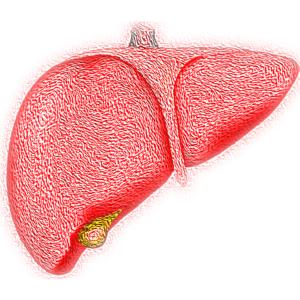COVID-19 and its rapid global spread have been anxiety-inducing, to say the least. For patients with rare diseases and their families, the growth of COVID-19 has also prompted additional questions on health, safety, and treatments. Now, the American Association for the Study of Liver Diseases (AASLD) is seeking to provide guidelines for hepatologists, liver transplant recipients, and patients with autoimmune hepatitis during this time.
According to Internal Medicine News, the AASLD suggests that liver transplants should continue. However, there are now additional considerations to take for immunosuppressed patients. Read the clinical insights from the AASLD here.
About Autoimmune Hepatitis
Autoimmune hepatitis is an immune disease in which the immune system starts to attack liver cells, resulting in inflammation. Type 1 autoimmune hepatitis is most common, but Type 2 is more common in children.
Symptoms include fatigue, joint pain, rashes, jaundice, and abdominal discomfort. Without treatment, the disease may progress to cirrhosis and liver failure. Although medications like prednisone or azathioprine can suppress immune responses, a liver transplant is usually required in more severe cases. Learn more about autoimmune hepatitis from Patient Worthy.
Watching Symptoms
The guidelines from the AASLD will be helpful for both patients and practitioners moving forward. However, both groups should also be aware of any growing patient symptoms.
Normally, certain symptoms in liver transplant recipients or patients with autoimmune hepatitis might indicate cellular rejection or disease flare. 14-53% of patients with COVID-19 experience elevated AST, ALT, and bilirubin levels.
For patients experiencing these symptoms, doctors should differentiate between disease flare, cellular rejection, and COVID-19 infection. Additionally, for patients with COVID-19, experimental treatments such as remdesivir and tocilizumab can be hepatotoxic, or destructive to liver cells. As such, regular liver function testing must occur.
If you are a patient who is pre- or post-liver transplant, has autoimmune hepatitis, or is being treated with immunosuppressive therapies, please do not be afraid to reach out to your doctors if you are concerned.
COVID-19 Testing
Before any surgeries are approved, patients should be tested for COVID-19. Patients who are positive for COVID-19 are not eligible for organ donation.
The most accurate and sensitive COVID-19 test is bronchoalveolar lavage at 93%. A bronchoscope is inserted into a specific area of the lungs. A measured amount of sterile saline is then added before being collected for examination.
The next most sensitive test is nasal swabs at 63%, followed by pharyngeal swabs at 32%. Pharyngeal swabs are taken from the pharynx, an area in the throat.
AASLD Guidelines
“Clinical Insights for Hepatology and Liver Transplant Providers During the COVID-19 Pandemic” encompasses advice on maintaining patient and provider health, while also managing liver treatments.
The AASLD encourages doctors to implement containment policies and reduce nonessential patient visits. While research still needs to be done on COVID-19, it is presumed that patients with comorbidities are more at risk. As such, the AASLD asks doctors to pay particular attention to patients:
- Over the age of 60
- With cirrhosis
- Being treated by immunosuppressants (autoimmune hepatitis, pre/post liver transplant)
Setting Appointments
Doctors should be available for telemedicine and offer ways to mitigate patient anxiety during this time. No new appointments or consults should be made unless patients are experiencing severe symptoms such as:
- Lowered liver function
- Jaundice
- Aspartate transaminase (AST) or alanine transaminase (ALT) levels over 500 U/L
Medication
Hepatologists should not change medication dosages for patients if they do not have COVID-19. If a patient does get COVID-19, doctors should reduce prednisone dosage. However, prednisone doses must be at least 10 mg/day.
If a patient experiences fever, pneumonia, or lowered lymphocyte (white blood cell) counts, azathioprine, mycophenolate, and calcineurin inhibitor doses should all be reduced.
If a patient is taking lopinavir or ritonavir, doses of tacrolimus should be reduced to 1/20 – 1/50 of baseline.
Liver Transplants
Despite COVID-19, liver transplants should not be postponed until a later date. However, any non-essential surgical procedures should be postponed. The AASLD also states that:
“the innate immune response may be the main driver for pulmonary injury due to COVID-19 and immunosuppression may be protective.”
As such, data may suggest that immunosuppressive therapies after liver transplants may actually protect from some COVID-19 damage. Patients taking immunosuppressants should not reduce or stop their medication, even after receiving a liver transplant. Additional protective measures include social distancing and hand washing.
Doctors should also evaluate patient need. For example, patients with end-stage liver disease or hepatocellular carcinoma, a primary liver cancer, should have priority for treatments. Learn more about hepatocellular carcinoma here.
In addition to liver transplants, a few other necessary surgical procedures should be carried out. These include biliary surgery (on the bile duct) and the placement of transjugular intraheptic portosystemic shunts, tubes that carry blood from the organs to the liver and from the liver to the heart.



